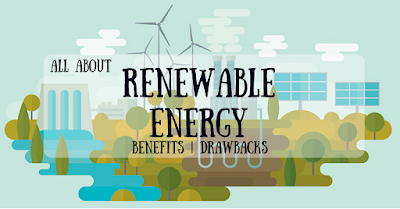New Tech Innovations to Combat Climate Change
In the course of recent years, human action has realized an ascent in worldwide temperatures, more outrageous climate designs and a definitely evolving biological system. The impacts of environmental change and ecological corruption can be unsafe to human wellbeing, with results, for example, water and food deficiencies, rising ocean levels and pollution. Environmental change is to a great extent caused by human activities, and it introduces a genuine danger to nature and individuals. Without ambitious global energy mitigation efforts, temperature rise this century will exceed 4 degrees Celsius above pre-mechanical levels, with calamitous results for the entire planet.
We would already be able to transform the sea into drinkable water through existing, industrial scale desalination plants. But, these plants are frequently exorbitant and can harm nature: They utilize a lot of energy, produce ozone depleting substances and can harm marine life. Thus, scientists in the UK have built up a sieve made out of graphene that might have the capacity to filter out salt utilizing less vitality. That could help to provide safe and clean drinkable water which is an uncommon asset in numerous nations.
The bullet casings that are shot out from a weapon after it's been discharged are accepted to take several years to biodegrade, as indicated by the Pentagon, and they contain segments that could harm the soil and water. Subsequently, the US Environmental Defence Agency says that military offices make up most of the nation's most polluted destinations. So the US Department of Defense is requesting new ammunition that contains seeds to deliver nourishment for creatures: "This effort will influence utilization of seeds to develop eco-friendly plants that evacuate soil contaminants and consume the biodegradable components created under this project."
The biology real set out to make a plastic made using a biodegradable material - and researchers succeeded to making ponchos, sacks and food packaging from cassava, a cheap and common vegetable found crosswise over Indonesia. As indicated by their examination, coffee could help ease an unnatural weather change by catching methane, which is the second most rich ozone depleting substance in our atmosphere and 25 times more worse than carbon dioxide.
We would already be able to transform the sea into drinkable water through existing, industrial scale desalination plants. But, these plants are frequently exorbitant and can harm nature: They utilize a lot of energy, produce ozone depleting substances and can harm marine life. Thus, scientists in the UK have built up a sieve made out of graphene that might have the capacity to filter out salt utilizing less vitality. That could help to provide safe and clean drinkable water which is an uncommon asset in numerous nations.
The bullet casings that are shot out from a weapon after it's been discharged are accepted to take several years to biodegrade, as indicated by the Pentagon, and they contain segments that could harm the soil and water. Subsequently, the US Environmental Defence Agency says that military offices make up most of the nation's most polluted destinations. So the US Department of Defense is requesting new ammunition that contains seeds to deliver nourishment for creatures: "This effort will influence utilization of seeds to develop eco-friendly plants that evacuate soil contaminants and consume the biodegradable components created under this project."
The biology real set out to make a plastic made using a biodegradable material - and researchers succeeded to making ponchos, sacks and food packaging from cassava, a cheap and common vegetable found crosswise over Indonesia. As indicated by their examination, coffee could help ease an unnatural weather change by catching methane, which is the second most rich ozone depleting substance in our atmosphere and 25 times more worse than carbon dioxide.



Comments
Post a Comment